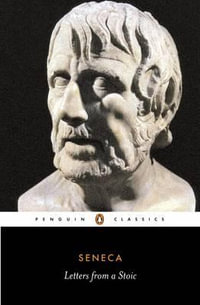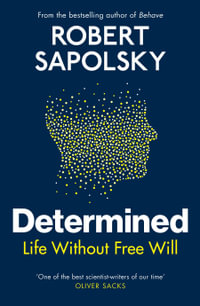Alasdair MacIntyre explores some central philosophical, political and moral claims of modernity and argues that a proper understanding of human goods requires a rejection of these claims. In a wide-ranging discussion, he considers how normative and evaluative judgments are to be understood, how desire and practical reasoning are to be characterized, what it is to have adequate self-knowledge, and what part narrative plays in our understanding of human lives. He asks, further, what it would be to understand the modern condition from a neo-Aristotelian or Thomistic perspective, and argues that Thomistic Aristotelianism, informed by Marx's insights, provides us with resources for constructing a contemporary politics and ethics which both enable and require us to act against modernity from within modernity. This rich and important book builds on and advances MacIntyre's thinking in ethics and moral philosophy, and will be of great interest to readers in both fields.
Industry Reviews
'For readers of Alasdair MacIntyre who have wondered how the views of his After Virtue, Whose Justice? Which Rationality? and Dependent Rational Animals hang together, this book is as good a response as we could have hoped for. In Ethics in the Conflicts of Modernity, we see the fundamental continuity of the ideas that MacIntyre has developed and defended over the past forty years. It is a canonical statement of MacIntyre's mature views in moral, political, and social philosophy.' Mark Murphy, Georgetown University, Washington DC
'Alasdair MacIntyre is one of the greatest living philosophers and any new book by him is bound to raise the highest expectations. Readers will not be disappointed by a book that represents the culmination of MacIntyre's life long project to situate ethical thought in its historical and political context. Beginning with academic discussions in meta-ethics, the work develops into a general theory of modernity from MacIntyre's Thomistic perspective. The range of reference is remarkable: from the work of Oscar Wilde and D. H. Lawrence to that of Aquinas and Marx. MacIntyre's scholarship and insight are evident on every page. Everyone - from moral and political philosophers to the reflective general reader - will greatly benefit from reading it.' Alan Thomas, Universiteit van Tilburg, The Netherlands
'It's as important a work of philosophy as there has been in some time and a must-read for MacIntyre's followers, detractors, and everyone in between.' Christian Century
'... astonishingly wide-ranging work ...' Marx and Philosophy Review of Books
'... especially where the misdeeds of the powerful are at issue, MacIntyre writes with great trenchancy; and one detects, underneath a cool and measured argumentative surface, the heart of an Amos or Isaiah, burning with righteous anger.' Commonweal
'Ethics in the Conflicts of Modernity is an essential addition to MacIntyre's distinguished body of work.' Richard Kraut, Notre Dame Philosophical Reviews
'[Ethics in the Conflicts of Modernity] is a rich and nuanced text that provides a foundational restatement of Thomistic practical philosophy for the 21st Century. It links moral philosophy, business ethics, and political philosophy in a way that contrasts with standard academic practice.' Caleb Bernacchio, Acta Philosophica
'For over three decades, Alasdair MacIntyre has been arguing that Thomistic Aristotelianism offers the best path forward for contemporary politics and ethics. While his philosophical career began in the 1950s, it has been this project ... that has established his reputation as one of the most significant philosophers of the twentieth century.' Jennifer A. Herdt, Studies in Christian Ethics
























